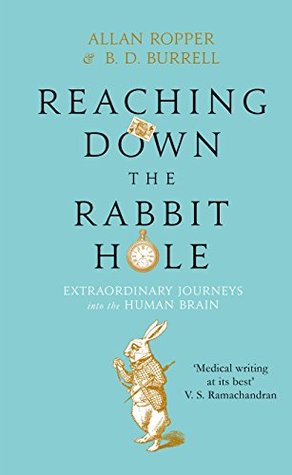More on this book
Community
Kindle Notes & Highlights
How do you begin to understand a sick brain? The only viable answer, as this book will show, is that you do it by engaging the person inside, and you do it on a case-by-case basis.
He knows that it’s only a matter of months. The irony is that the location of the tumor has neutralized the part of his brain that would allow him to care. So he was a character, but not so much anymore.
There is an old joke among stand-up comics that goes: “Dying is easy, comedy is hard.”
Psychosis is a special type of confusion with its own reality, an internal reality that is consistent only with itself. It does feature a connected, ever-flowing “stream of thought,”
One of the most unusual features of the case, similar to transient global amnesia, was that she repeated the same comment with the same inflection each time Dr. Fisher told her his name. “Oh, that’s like my maiden name. I won’t forget it.” (Her maiden name was Fistay.)
Symptoms are what a patient reports. Signs are what a physician sees in an examination. Symptoms are thus subjective, and signs objective.
Her eyes follow their own images in the mirror. It’s gimmicky, like the $100 bill trick, but seeing eyes almost always follow the mirror. Elliott has his own unfortunate variant: he will take a Post-it note, and in small letters write GO FUCK YOURSELF on it, and then stick it on his forehead while he interviews the patient.
The Brits call this sort of thing Functional Neurological Symptoms, or FNS, the psychiatrists call it conversion disorder, and almost everyone else just calls it hysteria.
The average American has at least one unexplained symptom every week or two, and less than one-fifth of survey subjects report no symptoms at all during the three days prior to a random query. Headache, tingling, pain, dizziness, briefly blurred vision, a slight imbalance when walking, loss of train of thought, feelings of jabs and jolts: these are the most common symptoms, and they befall any healthy nervous system, then disappear and are forgotten.
I know something about electrical fields, I know something about neurology, and I know something about baloney. Baloney is not hysteria or a conversion reaction. Unlike conversion, which has everything to do with overt neurological dysfunction, the more outrageous the better, baloney involves the exaggerated reporting of personal neurological experiences that is focused on nonsense, usually abetted by the hyperbolic popular press, all bordering on the delusional.
In this case, I suggested that they both might be magnetized. As an experiment, I said, he and his wife should float on their backs in their swimming pool to see if they both pointed north. I was guessing that they had a pool. I was right. They never came back.
“The patients are holding out their troubles. They are not really asking you to take them. You should only take them if you want or need to take them. Otherwise, leave it.
As another wise neurologist told me early on, “You want to be a nephrologist or a urologist? C’mon! The kidney? It makes urine! Who gives a shit? Now the brain—the brain makes poetry.”
George reminds me often that our role is to give Sophie balloons, not anchors.
Happiness is a decision. What other people think of me is not my business. Live and try.
Deductive reasoning, as opposed to inductive reasoning, is what detectives and diagnosticians should be doing. Deduction works from general facts toward specific conclusions. If the “facts” really are facts, the conclusions have to be true. But induction—a quicker and much more practical method of reasoning that everyone uses every day—can lead to errors. That’s because an inductive process infers a conclusion, but doesn’t prove
In fact if you know a lot about the eyes—in great detail—then you’re practically a neurologist. This is not chance.


